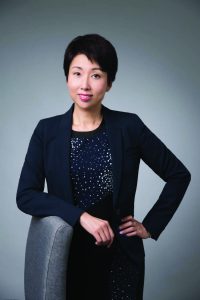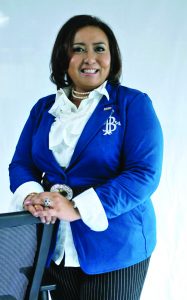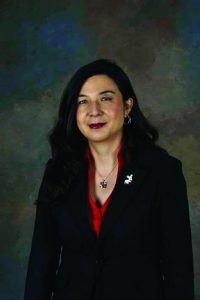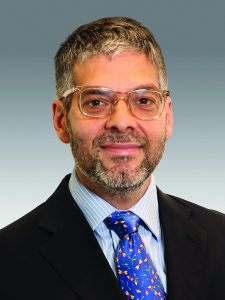Hear from our advisory board members of the upcoming Women in Finance Awards Asia, planned for May 3rd in Hong Kong, about their experience with mentoring, giving back and keys to success.
What have been the keys to success in your career?



What has been your experience as a woman in finance, historically a male-dominated field?
CC: While finance is still a male-dominated field, it is encouraging to see more and more women in the industry and in senior leadership roles. There is increasing momentum behind the push to create a more gender balanced world; certainly in our firm there have been many steps taken over the years, not least signing the Women in Finance Charter, which showcases our commitment to increasing representation of senior women in the bank. In my experience, it is about leadership – inclusive leadership – that values the benefits of a diverse workforce, as we build a common purpose and focus on delivering results.
AAA: So much has been written about why women are under-represented in the financial world let alone in senior leadership positions – from poor childcare provisions to institutional bias. But what can be agreed upon are the common traits of great leaders, and that women tend to have a high level of emotional intelligence and that has a profound impact on the way they run companies. Being able to thrive in the face of adversity is necessary to be successful long-term. I am always motivated by opportunities to grow and improve. I continuously improve on being emotionally smart, reminding myself to be self-aware and to have an executive presence before I dive into developing others.
JL: It’s been a very positive and enriching journey. I’m a trader, which is historically male dominated. Over the past few years, the interest in trading analytics, liquidity and impact costs management has made trading more transparent to the outside world. As traders’ performances could be measured quantitatively, it became easier to demonstrate good performances in numbers. This benefitted women who, in the past, might not have as vocal in communicating their capabilities.
Have you had any especially notable mentors/role models who have helped you along your career path?
CC: I have been fortunate to have worked with managers that have offered me a lot of support and encouragement to advance my career. Their belief in me was and continues to be a great motivator for me to keep pushing the envelope.
AAA: One of my early bosses was a tough mentor. He hired me being the only female at the futures trading desk which tells me he was clearly the catalyst for change, challenging structures that disadvantage women while at the same time remaining committed to the success of the organization. However the most influential person in my life and my go-to person is my mother. She encourages and enlightens me towards fresh perspectives on matters that I could not have understood if not for her allowing me to see them through the eyes of another.
How do you “give back”, in terms of for example charitable causes or mentorship?
CC: I volunteer as a mentor through BNP Paribas’ Mentorship programme in the field of finance, and also outside of the industry, as I find it crucial to promote the importance of women in leadership. I am currently developing my skills to this effect through a formal executive coaching course, to help me become a more effective mentor.
AAA: I trained myself to get comfortable with coaching which promotes active learning and creativity. Along the way, it helps foster healthy working relationships between a leader and those who work with them because they know they can count on each other.
JL: I have been fortunate in that the vast majority of my bosses (both men and women) have been supportive and gave me invaluable professional guidance. Apart from that, I really like Margaret Thatcher. She was ahead of her time, and brought her own indomitable style into the world of British politics. I spent a lot of time with new graduates, helping them align their strengths, their career choices with the opportunities available in the market. I wish someone had done that for me when I was starting out.
What would be your advice to young women considering a career in finance?
CC: Young women entering finance need to know where their passion lies, be willing to take on challenges, be confident and, last but not least, remember to keep a work-life balance by finding interests outside of work.
AAA: Have courage, passion and tenacity.
JL: Be grown up about the choices you make, know yourself and don’t be afraid to take the path less travelled.
How has the cause of women in finance evolved/advanced during your career?
CC: The finance industry has been paying more attention to this over the past 10 years, and there are now more programmes supporting diversity in the field. It is incumbent on firms like BNP Paribas to drive positive change, be it by signing the Women in Finance Charter, the UN’s Women Empowerment Principles in 2011 or implementing gender targets for participation in leadership programmes to ensure there’s a strong pipeline of female talent for key roles. I’m proud to say that 43% of our global Board of Directors are women.
AAA: Today it is encouraging to note of the growing number of women involved in the financial world as compared to twenty years ago. However, women in leadership positions remain under-represented. In Malaysia, the government has urged companies to have at least 30% of women in leadership positions in the corporate sector by 2020. In the context of the financial services industry, I’m proud to say that Malaysia has consistently seen women taking up important leadership roles.
JL: I started off my career as a derivatives trader in London. At that time, there were few derivatives traders and few women. I was one of 2 women in a team of 10 people. Now I’m happy to see more women pursue their passion in STEM (Science, Technology, Engineering, Maths) subjects and have the skillsets to take on a wider set of roles. I’m sure the ratio of most trading desks these days will be closer to 50/50. That’s what it is at my firm!
What is the importance of an event recognizing top women in finance in Asia?



How can the industry encourage even more gender diversity in the Asia marketplace?
JH: There are several ways the industry can increase diversity, such as actively promoting and recognizing top talent among the female workforce in events like WIFA, broadening the way the industry recruits new hires, and evolving and expanding senior networking opportunities. Greater transparency and access should result in a continuation of this positive momentum.
KR: My view on this is that we need to be striving for equality. The equal weighting of an array of voices across gender, background and experiences is of unquestionable value.
DR: Having balanced teams – which include people of different backgrounds – makes a huge difference to the intellectual output produced, the creative flair, as well as the day-to-day, operational output in a practical sense. Women add a completely different perspective/approach when it comes to problem solving, idea generation and help foster a more rounded (and grounded!) culture to any team.
What can men do to further support the advancement of women in finance?
JH: There are a lot of “unconscious bias” behaviours that may get in the way of encouraging a more diverse workforce. Raising awareness of those behaviours can go a long way. Once we become sensitive to how certain activities may be inadvertently biased in some way, we can stop doing them. Nomura Group’s WIN organization has a “Male Mentors” program that provides education and encourages active participation from men around the firm – particularly senior managers — in activities that promote diversity and the advancement of women. Those with management responsibility can try to develop a habit of actively seeking out diversity — whether it is diversity of thought, experience, gender, ethnicity, style, etc. — when we’re hiring new employees, staffing new initiatives, or assigning important projects. If we put a higher premium on seeking different perspectives, fresh thinking, and challenging the status quo, we will be more likely to see greater diversity.
KR: The whole world needs to take a view of equality. It is not necessarily about the advancement of women, it is the levelling of the playing field and having the natural mindset choices and decisions are made irrespective of sex. So in short it’s a reset of the mindset.
DR: It is critical men provide support. In my experience, men are not the sole ‘problem’ in terms of why women are under-represented, but as the majority group in the financial industry, they have an enormous responsibility to provide the right environment in which women can thrive and perform. It has to be a collaboration! Leading men in the industry should be advocates for all the great work women do, demonstrating this through active involvement, hiring policy and public viewpoints about the issue.
Learn more about Women in Finance Asia Awards here: marketsmedia.com/women-in-finance-asia

